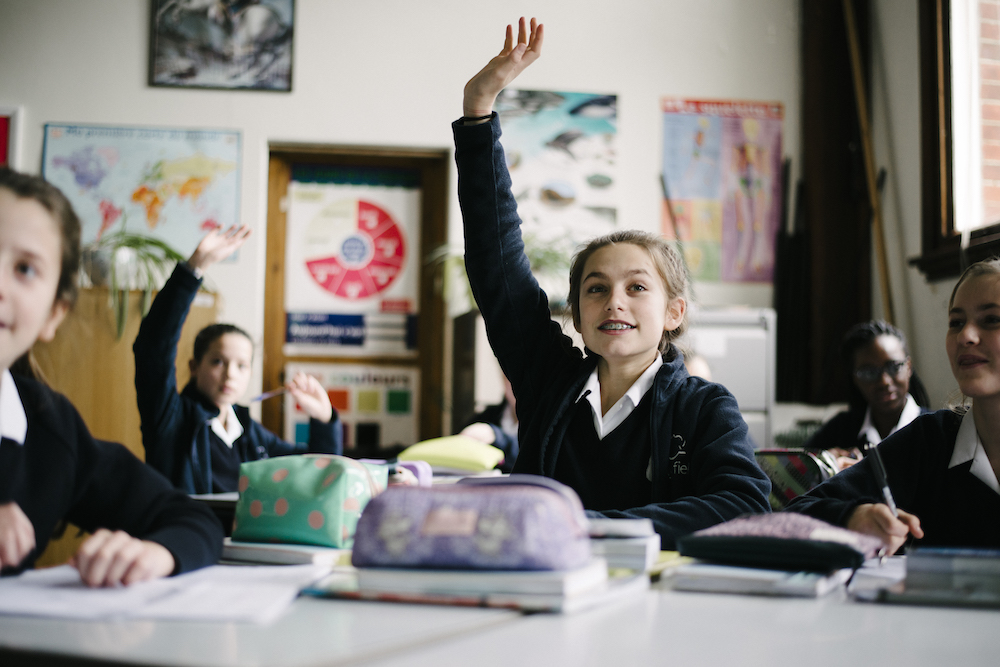Making mistakes isn’t easy for any of us, but it should be a crucial part of education
Posted on 23rd Jan 2017 in Which School?, School News
Antonia Beary, Headmistress of Mayfield School in East Sussex, says children need the benefit of learning through trial and error...
Today, more than ever, it is an increasingly traumatic experience. Many children, particularly girls, feel that they need to get everything right, all the time. We know that that is not possible, but the pressure it creates, self-inflicted or fuelled by parents, is immense. Research has shown that girls feel the pain of failure more sharply. That is why the learning environment we seek to create at Mayfield needs to ensure that they feel sufficiently confident to take risks and make mistakes. Otherwise you end up with girls (and sometimes boys too) who only attempt what they know they can achieve and therefore underachieve. This can be immensely frustrating and the pressure has to be relieved. The internet offers lots of frightening ways to do this and worse, normalises them.
It should come as no surprise that issues of mental health are not only increasing, but emerging earlier in younger children. Access to a wide range of media can lead children to constantly feel they are not good enough and don’t have enough. This is hardly surprising, when they are so frequently presented with such unachievable, impossible ‘ideals’, dubious values and virtual reality life styles blurring the distinction between fact and fiction. We are all familiar with the pressures on girls to have ‘perfect’ bodies and complexions and the ‘products’ to help address these: the increasing commercialisation of male grooming products suggests this is becoming an equivalent problem for boys. [Even the term ‘grooming’ with its unpleasant modern connotations gives an indication of the effect the media and multinationals are having on us all for financial gain.]
This insecurity can be compounded by pressure at school. Increasingly there appears to be an expectation that children have to achieve the highest grades from the first day of school. In the intensely competitive arena that is the London scene, echoed in those areas where the 11+ exam dominates a child’s existence at junior school, parents tell me that they feel if their child is not immediately successful he or she will be categorised as a failure and this will become a self-fulfilling prophecy. It is a highly competitive market. Those who are ‘clever’ are pushed to achieve more. Don’t fit the mould? You will be left behind. In practice what this means is that those who are well-behaved, sit quietly and learn what they are told, then regurgitate it at the right time in the right way, are considered successful. They may indeed go on to score highly in exams, but they are not always able to think independently, creatively or originally. Children need to have time to think, to play, to get in and out of trouble, to develop enquiring minds and the motivation to find out the answers for themselves. In elevating a certain type of learning and certain skill sets to the exclusion of others we are alienating an increasing number of children, who have an impoverished and inaccurate perception of their own self-worth. As a country, we are losing a tremendous amount of potential.
As schools, we need to help parents to cope with their children getting things wrong and making mistakes. Children need to experience getting things wrong, in a safe and monitored environment, to grow and be healthy. Then they learn how to cope with things not working out the way they had imagined, and realise that they can pick themselves up and carry on. They also find out what they are good at and learn to value different strengths, in themselves and others. This resilience has to be experienced. Children need to learn what they should respond to themselves and when to ask for help. Giving in too soon and always relying on other people is as bad as trying to do everything on your own. At school children need to have the opportunity to learn through trial and error. Owning up to mistakes and learning from them is an important part of education. Those parents, who rush in to defend their children every time a mild criticism is made, do them no favours. Every child (and indeed adult) messes things up, from time to time. Denying it creates an illusion and additional pressure. No child can live up to such unrealistic expectations and furthermore, such a parental response can compromise the teacher’s ability to help a child learn. Fear of disappointing parents is a great inhibitor. Acknowledging (without celebrating) the inevitability of things going wrong occasionally can be a relief for children.
Are the girls and staff at my school perfect? Certainly not. We are human. We might be striving for perfection but the relief in knowing what we don’t have to get everything right all the time, and that there are people to help us cope when things go wrong, leads to more creative learning and happier students. That’s success; that’s education.
Antonia Beary has been Headmistress of Mayfield School since 2008. Mayfield is a leading independent girls’ boarding and day school in East Sussex which prides itself on its excellent academic record, which stand alongside exceptional extra-curricular provision.
For more information about Mayfield School, see their profile on School Search, the leading online guide to UK independent schools.